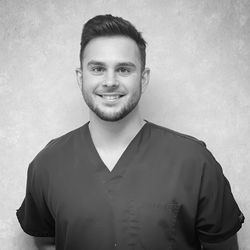- Home
- Meet Us
- Services
- Our Office
- Patient Resources
- After Care Instructions
- Data Appliance Post Op Instructions
- Dry Socket Post Op Instructions
- EMA Appliance Post Op Instructions
- Extractions Post Op Instruction
- Implant Surgery Post Op Instructions
- Laser Treatment Post Op Instructions
- MicroNeedling Post Op Instructions
- Opalescence Take Home Instructions
- Oral Surgery Post Op Instructions
- Pain Management Post Op Instructions
- Periodontal Surgery Post Op Instructions
- Root Canal Post Op Instructions
- Teeth Whitening Post Op Instructions
- Temporary Veneers Post Op Instructions
- Cerec Crown Post Op Instructions
- Patient Tools
- Patient Forms
- Insurance Information
- Financial Information
- Patient Referral
- Reviews
- After Care Instructions
- Care Esthetics
- Contact
Biological Dentistry in Highland Heights, OH
Biological dentistry takes a comprehensive and alternative approach to oral health care. It recognizes that our teeth and gums are not isolated entities but integral parts of our overall well-being. Unlike traditional dentistry, which focuses solely on the treatment of dental issues, biological dentistry considers how dental procedures can impact the whole body.
Common Procedures in Biological Dentistry
- One common procedure in biological dentistry is mercury amalgam filling removal. Mercury is a toxic substance that has long been used in dental fillings. However, many biological dentists advocate for the safe removal of these fillings due to concerns about potential health risks associated with mercury exposure.
- Another procedure frequently performed by biological dentists is ozone therapy. Ozone gas can be used to disinfect and treat various dental conditions such as cavities, gum disease, and even root canal infections. This natural approach harnesses the power of oxygen to eliminate harmful bacteria without resorting to harsh chemicals or antibiotics.
- Biological dentists also focus on proper nutrition as an essential aspect of maintaining good oral health. They may offer dietary counseling or recommend supplements that support healthy teeth and gums. Additionally, they may perform tests to assess any potential underlying nutritional deficiencies that could impact oral health.
- In addition to these specific procedures, biological dentists emphasize holistic approaches such as detoxification protocols before major interventions like surgery or implants. They consider how each treatment affects not only the teeth but also their patients' overall physical and emotional well-being.
Benefits of Biological Dentistry
Here are some of the key advantages of choosing biological dentistry for your oral health needs:
- One major benefit is the focus on prevention rather than just treatment. Biological dentists prioritize education and proactive measures to help patients maintain optimal oral health. This means they often emphasize proper nutrition, good oral hygiene habits, and regular check-ups to prevent issues before they arise.
- Another advantage is the use of biocompatible materials in dental procedures. Unlike conventional dentists who may rely on amalgam fillings containing mercury or other potentially toxic substances, biological dentists opt for safer alternatives such as composite resin fillings free from harmful chemicals.
- Additionally, biological dentistry takes a whole-body approach to dental care by recognizing and understanding the connection between oral health and overall well-being. A healthy mouth can contribute to better systemic health, while poor oral health has been linked to various conditions like heart disease and diabetes.
- Moreover, individuals with sensitivities or allergies can benefit greatly from biological dentistry. These practitioners take into account a patient's unique sensitivities when selecting materials for treatments or performing procedures such as root canal therapy using ozone therapy instead of harsh chemicals.
- Many people appreciate that biological dentistry focuses on minimally invasive techniques whenever possible. This means preserving natural tooth structure whenever feasible instead of resorting immediately to extractions or invasive procedures.
To learn more, call Koski DePaul Dental Group at 440-460-5400 or visit us at 5564 Wilson Mills Rd. #101 #102, Highland Heights, OH 44143, to schedule an appointment with us.
Visit Our Office
Highland Heights, OH
5564 Wilson Mills Rd. #101 #102, Highland Heights, OH 44143
Email: smile@koskidepaul.com
Book NowOffice Hours
- MON - TUE8:00 am - 5:00 pm
- WEDClosed
- THU - FRI8:00 am - 5:00 pm
- SAT - SUNClosed




